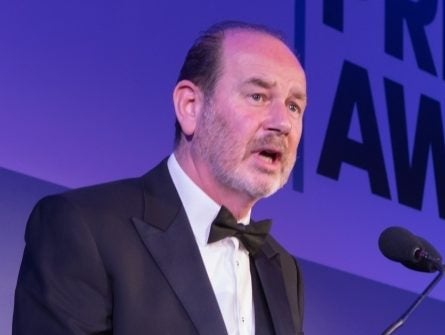
The vast majority of senior local news journalists are concerned they do not have the resources to hold power to account in the way they once did, a new survey by the Society of Editors and Index on Censorship has revealed.
Of the 45 SOE members who took part in the study (both current and former journalists), 97 per cent shared this concern, of which 70 per cent said it worried them “a lot”.
The survey, which was carried out in February, also found that half of those who took part said their biggest fear about the future of local journalism was that no-one will be doing the “difficult” stories.
This compared to about 40 per cent who were most worried about the public’s right to know disappearing, and less than ten per cent who feared local news will “just cover light, fun stories” in future.
Society of Editors executive director Ian Murray (pictured) told Press Gazette he was not surprised by the result of the survey, given the industry’s response to the Cairncross Review earlier this year.
“I think it is a wake-up call,” he said. “The local press can do more to sound the alarm within their communities. There is a reluctance, I’m sure, to take the debate out there within local communities to say we are under threat.”
Murray added: “I think as an industry the regional press should shout a bit more. We have one week a year, which is Local Newspaper Week (now rebranded as Journalism Matters), which is fantastic, but that’s one week.
“I think it needs to be more, perhaps a monthly digest like ‘look what we wouldn’t have known if we hadn’t told you’.
“Yes, of course the local media industry should be hammering on the doors of politicians, should be hammering on the doors of people like us at the Society of Editors saying ‘speak up for us’, but they also need to be blowing their own trumpets in the communities saying: ‘Look what we do for you, support us’.”
Twenty of the senior editorial staff who took part in the survey felt only half as much local news in their area is covered compared with a decade ago.
Specific worries included court coverage, with 18 per cent of editors saying they “hardly ever” cover courts and 74 per cent saying their publication reports from court once a week, and council reporting.
Nottingham Post editor Michael Sassi told the survey: “There’s no doubt that local decision-makers aren’t subject to the level of scrutiny they once were.”
Index on Censorship also commissioned a Yougov poll which asked 1,840 British adults their thoughts about local journalism.
The poll found that 40 per cent of over-65s think the public knows less about what is happening in communities where a local newspaper has closed, compared with 28 per cent of 18 to 24-year-0lds.
Meanwhile 26 per cent of over-65s said politicians have too much power in those areas, compared with only 16 per cent of young people saying the same.
Index on Censorship said the figures showed a “striking” age divide as older people worry most about local news.
Index on Censorship editor Rachael Jolley said: “Big ideas are needed. Democracy loses if local news disappears. Sadly, those long-held checks and balances are fracturing, and there are few replacements on the horizon.
“Proper journalism cannot be replaced by people tweeting their opinions and the occasional photo of a squirrel, no matter how amusing the squirrel might be.”
“If no local reporters are left living and working in these communities, are they really going to care about those places? News will go unreported, stories will not be told, people will not know what has happened in their towns and communities.”
The full report can be found in Index on Censorship’s spring magazine.
Picture: Society of Editors
Email pged@pressgazette.co.uk to point out mistakes, provide story tips or send in a letter for publication on our "Letters Page" blog
